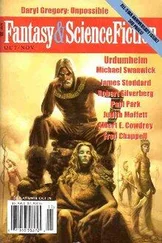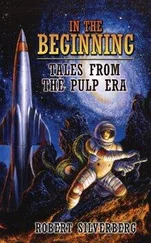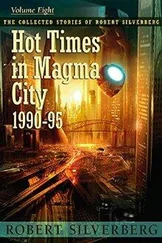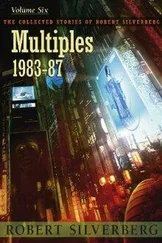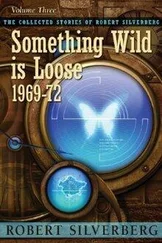Robert Silverberg - To Open the Sky
Здесь есть возможность читать онлайн «Robert Silverberg - To Open the Sky» весь текст электронной книги совершенно бесплатно (целиком полную версию без сокращений). В некоторых случаях можно слушать аудио, скачать через торрент в формате fb2 и присутствует краткое содержание. Год выпуска: 1967, Издательство: Ballantine Books, Жанр: Фантастика и фэнтези, на английском языке. Описание произведения, (предисловие) а так же отзывы посетителей доступны на портале библиотеки ЛибКат.
- Название:To Open the Sky
- Автор:
- Издательство:Ballantine Books
- Жанр:
- Год:1967
- ISBN:нет данных
- Рейтинг книги:5 / 5. Голосов: 1
-
Избранное:Добавить в избранное
- Отзывы:
-
Ваша оценка:
- 100
- 1
- 2
- 3
- 4
- 5
To Open the Sky: краткое содержание, описание и аннотация
Предлагаем к чтению аннотацию, описание, краткое содержание или предисловие (зависит от того, что написал сам автор книги «To Open the Sky»). Если вы не нашли необходимую информацию о книге — напишите в комментариях, мы постараемся отыскать её.
To Open the Sky — читать онлайн бесплатно полную книгу (весь текст) целиком
Ниже представлен текст книги, разбитый по страницам. Система сохранения места последней прочитанной страницы, позволяет с удобством читать онлайн бесплатно книгу «To Open the Sky», без необходимости каждый раз заново искать на чём Вы остановились. Поставьте закладку, и сможете в любой момент перейти на страницу, на которой закончили чтение.
Интервал:
Закладка:
Shivering a little, he stepped out into the morning chill. Dawn was breaking. Mondschein put the camera back where he had found it, after removing the capsule of holographic plates. They were tiny; the whole capsule was not much bigger than a thumb-nail. He slid it into his breast pocket and returned to the dormitory.
The moment his head touched the pillow, he forgot that he had left his room at all that night.
In the morning Mondschein said to Capodimonte, “Let’s go to Frijoles today.”
“You’re really getting the bug, aren’t you?” Capodimonte said, grinning.
Mondachein shrugged. “It’s just a passing mood. I want to look at ruins, that’s all.”
“We could go to Puye, then. You haven’t been there. It’s pretty impressive, and quite different from—”
“No. Frijoles,” Mondschein said. “All right?”
They got a permit to leave the center—it wasn’t too difficult for lower-grade technicians to go out—and in the early part of the afternoon they headed westward toward the Indian ruins. The teardrop hummed along the road to Los Alamos, a secret scientific city of an earlier era, but they turned left into Bandelier National Monument before they reached Los Alamos, and bumped down an old asphalt road for a dozen miles until they came to the main center of the park.
It was never very crowded here, but now, with summer over, the place was all but deserted. The two acolytes strolled down the main path, past the circular canyon-bottom pueblo ruin known as Tyuonyi, carved from blocks of volcanic tuff, and up the winding little road that took them to the cave dwellings. When they reached the kiva, the hollowed-out chamber that once had been a ceremonial room for prehistoric Indians, Mondschein said, “Wait a minute. I want to have a look.”
He scrambled up the wooden ladder and pulled himself into the kiva. Its walls were blackened by the smoke of ancient fires. Niches lined the wall where once had been stored objects of the highest ritual importance. Calmly and without really understanding what he was doing, Mondschein drew the tiny capsule of holograms from his pocket and placed it in an inconspicuous corner of the farthest left-hand niche. He spent another moment looking around the kiva, and emerged.
Capodimonte was sitting on the soft white rock at the base of the cliff, looking up at the high reddish wall on the far side of the canyon. Mondschein said, “Feel like taking a real hike today?”
“Where to? Frijolito Ruin?”
“No,” Mondschein said. He pointed to the top of the canyon wall. “Out toward Yapashi. Or to the Stone Lions.”
“That’s a dozen miles,” Capodimonte said. “And we hiked there in the middle of July. I’m not up to it again, Chris.”
“Let’s go back, then.”
“You don’t need to get angry,” Capodimonte said. “Look, we can go to Ceremonial Cave instead. That’s only a short hike. Enough’s enough, Chris.”
“All right,” Mondschein said. “Ceremonial Cave it is.
He set the pace for the hike, and it was a brisk one. They had not gone a quarter of a mile before the pudgy Capodimonte was out of breath. Grimly, Mondschein forged on, Capodimonte straggling after him. They reached the ruin, viewed it briefly, and turned back. When they came to park headquarters, Capodimonte said that he wanted to rest awhile, to have a snack before returning to the research center.
“Go ahead,” Mondschein said. “I’ll browse in the curio shop.”
He waited until Capodimonte was out of sight Then, entering the curio shop, Mondschein went to the communibooth. A number popped into his brain, planted there hypnotically months before as he lay slumbering in the Nothing Chamber. He put money in the slot and punched out the number.
“Eternal Harmony,” a voice answered.
“This is Mondschein. Let me talk to anybody in Section Thirteen.”
“One moment, please.”
Mondschein waited. His mind felt blank. He was a sleepwalker now.
A purring, breathy voice said, “Go ahead, Mondschein… Give us the details.”
With great economy of words Mondschein told where he had hidden the capsule of holograms. The purring voice thanked him. Mondachein broke the contact and stepped from the booth. A few moments later Capodimonte entered the curio shop, looking fed and rested.
“See anything you want to buy?” he asked.
“No,” Mondschein said. “Let’s go.”
Capodimonte drove. Mondschein eyed the scenery as it whizzed past, and drifted into deep contemplation. Why did I come here today? he wondered. He had no idea. He did not remember a thing—not a single detail of his espionage. The erasure had been complete.
eight
They came for him a week later, at midnight. A ponderous robot rumbled into his room without warning and took up a station beside his bed, the huge grips ready to seize him if he bolted. Accompanying the robot was a hatchet-faced little man named Magnus, one of the supervising Brothers of the center.
“What’s happening?” Mondschein asked.
“Get dressed, spy. Come for interrogation.”
“I’m no spy. There’s a mistake, Brother Magnus.”
“Save the arguments, Mondschein. Up. Get up. Don’t attempt any violence.”
Mondschein was mystified. But he knew better than to debate the matter with Magnus, especially with eight hundred pounds of lightning-fast metallic intelligence in the room. Puzzled, the acolyte quit his bed and slipped on a robe. He followed Magnus out. In the hallway others appeared and stared at him. There were guarded whispers.
Ten minutes later Mondschein found himself in a circular room on the fifth floor of the research center’s main administration building, surrounded by more Brotherhood brass than he had ever expected to see in one room. There were eight of them, all high in councils. A knot of tension coiled in Mondschein’s belly. Light glared into his eyes.
“The esper’s here,” someone muttered.
They had sent a girl, no more than sixteen, pasty-faced and plain. Her skin was flecked with small red blotches. Her eyes were alert, unpleasantly gleaming, never still.
Mondschein despised her on sight, and he tried desperately to keep the emotion under rein, knowing that she could seal his fate with a word. It was no use: she detected his contempt for her the moment she came into the room, and the fleshy lips moved in a quick twitching smile. She drew her dumpy body erect.
Supervisor Magnus said, “This is the man. What do you read in him?”
“Fear. Hatred. Defiance.”
“How about disloyalty?”
“His highest loyalty is to himself,” the esper said, clasping her hands complacently over her belly.
“Has he betrayed us?” Magnus demanded.
“No. I don’t see anything that says he has.”
Mondschein said, “If I could ask the meaning of—”
“Quiet,” Magnus said witheringly.
Another of the Supervisors said, “The evidence is incontrovertible. Perhaps the girl’s making a mistake.”
“Scan him more closely,” Magnus directed. “Go back, day by day, through his memory. Don’t miss a thing. You know what you’re looking for.”
Baffled, Mondschein looked in appeal at the steely faces about him. The girl seemed to be gloating. Stinking voyeur, he thought. Have a good scan!
The girl said thinly, “He thinks I’m going to enjoy this. He ought to try swimming through a cesspool sometime, if he wants to know what it’s like.”
“Scan him,” Magnus said. “It’s late and we have many questions to answer.”
She nodded. Mondschein waited for some sensation telling him that his memories were being probed, some feeling as of invisible fingers going through his brain. There was no such awareness. Long moments passed in silence, and then the girl looked up in triumph.
Читать дальшеИнтервал:
Закладка:
Похожие книги на «To Open the Sky»
Представляем Вашему вниманию похожие книги на «To Open the Sky» списком для выбора. Мы отобрали схожую по названию и смыслу литературу в надежде предоставить читателям больше вариантов отыскать новые, интересные, ещё непрочитанные произведения.
Обсуждение, отзывы о книге «To Open the Sky» и просто собственные мнения читателей. Оставьте ваши комментарии, напишите, что Вы думаете о произведении, его смысле или главных героях. Укажите что конкретно понравилось, а что нет, и почему Вы так считаете.




